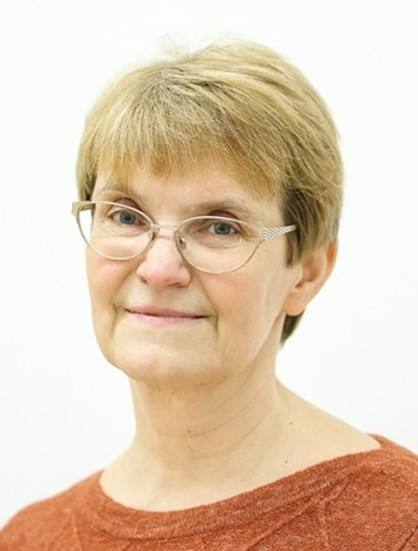Elena
Kustova (Saint Petersburg State University, Russia )
|
|
Elena Kustova Elena Kustova graduated from Saint Petersburg State University (1988), and received her PhD in Mechanics (1993) and doctoral thesis (2002) in the same university. Since 1993 she has been working at Saint Petersburg State University as a researcher, associate professor (1997-2003), professor (since 2003). In 2015, she was elected as a Professor of the Russian Academy of Sciences in the Department of Energy, Engineering, Mechanics and Control.
She was invited as a visiting professor at the University of Provence Aix-Marseille (France, 1998-2007), the University of Bari (Italy, 2000, 2010), von Karman Institute for Fluid Dynamics (Belgium, 2014), Federal University of Paraná (Brazil, 2014).
Member of the International Advisory Committee of Rarefied Gas Dynamics Symposia since 2008.
Research interests: kinetic theory of transport and relaxation processes in nonequilibrium reacting gases; rigorous self-consistent mathematical models of nonequilibrium flows taking into account complex physical and chemical kinetics; rates of nonequilibrium processes; gas-surface interaction.
|

|
Title: Non-Equilibrium Transport Phenomena in Polyatomic Gases
Abstract:Modeling non-equilibrium flows is of vital importance for the wide range of applications: aerospace science, vacuum technologies, low-temperature plasma. Depending on the Knudsen number and kinetic scaling based on the ratio of characteristic times of collisional processes to the fluid-dynamic time, the flow can be treated as weakly or strongly non-equilibrium. In the frame of the continuum approach, weakly non-equilibrium effects are captured by transport coefficients in the Navier-Stokes-Fourier equations. Under strongly non-equilibrium conditions, fluid-dynamic equations are to be coupled to relaxation equations for additional variables such as vibrational energy, chemical species densities, or vibrational state populations. To develop a closed model of a non-equilibrium flow, it is necessary to derive constitutive relations for the transport terms in these equations.
For monoatomic and diatomic species, the kinetic theory of non-equilibrium transport processes is well established [1-2]. For polyatomic species like carbon dioxide, methane and others, the presence of multiple vibrational degrees of freedom leads to serious complications of transport phenomena. Vibrational modes with considerably different frequencies may be out of equilibrium with both translational-rotational modes and other vibrational modes. The state-to-state approach, which works well for diatomic species, is prohibitively computationally expensive, when applied to polyatomic gases [3]. Therefore, development of accurate multi-temperature models based on reliable kinetic scaling in polyatomic gases is highly relevant for modern applications.
The present study is devoted to the development of advanced models for non-equilibrium flows of CO2, CH4, and mixtures with noble gases. The models of different complexity derived in the frame of the generalized Chapman-Enskog method [2] include extended sets of governing equations together with their closure: constitutive relations for the transport terms and algorithms for the transport coefficient evaluation. The developed models are then applied for solving several benchmark gas-dynamic problems: adiabatic bath relaxation, shock wave structure, quasi-one-dimensional nozzle flow. Several strategies are assessed to speedup resource-demanding simulations while keeping reasonable accuracy: applying hybrid models [4] derived on the basis of state-to state ones, and using machine learning techniques [5] for fast predictions of thermodynamic and transport properties. The effects of bulk viscosity, mass and thermal diffusion, diffusion of vibrational energy in different modes, non-equilibrium free stream conditions and rate coefficients of vibrational energy transitions on the flow variables, viscous stress, and heat flux are analyzed.
|
|
|
|
![]()